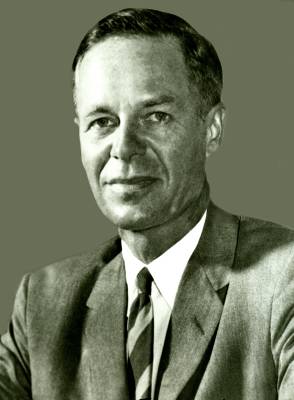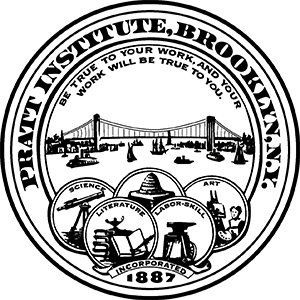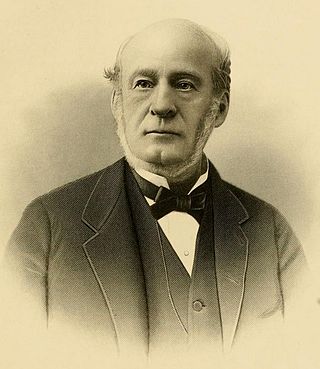Related Research Articles

Charles Pratt was an American businessman. Pratt was a pioneer of the U.S. petroleum industry, and he established his kerosene refinery Astral Oil Works in Brooklyn, New York. He then lived with his growing family in Clinton Hill, Brooklyn. He recruited Henry H. Rogers into his business, forming Charles Pratt and Company in 1867. Seven years later, Pratt and Rogers agreed to join John D. Rockefeller's Standard Oil.

Charles Woodruff Yost was a career U.S. Ambassador who was assigned as his country's representative to the United Nations from 1969 to 1971.

Pratt Institute is a private university with its main campus in Brooklyn, New York. It has a satellite campus in Manhattan and an extension campus in Utica, New York at the Munson-Williams-Proctor Arts Institute. The school was founded in 1887 with programs primarily in engineering, architecture, and fine arts. Comprising six schools, the institute is primarily known for its programs in architecture, graphic design, interior design, and industrial design.

Amory Houghton Jr. was an American Republican politician from the U.S. state of New York. He served as a member of the United States House of Representatives and was a member of one of upstate New York's most prominent business and political families, the Houghtons.
Edmund T. Pratt Jr. was the Chairman and CEO of Pfizer Inc. He served as President from 1971 to 1972, CEO from 1972 to 1991, and Chairman from 1972 to 1992. He is the namesake of Duke University's Engineering School.

Thomas Earle was an American journalist, lawyer, and politician. The son of Pliny Earle, he was born in Leicester, Massachusetts, the descendant of Ralph Earle, one of the original petitioners of King Charles I to found the state of Rhode Island. His son was a Philadelphia lawyer George H. Earle, Sr. His grandson, born after his death, was noted "financial diplomat" George H. Earle, Jr. His great-grandson was George Howard Earle III, governor of Pennsylvania.
William Rogers Coe was an American banker and railroad executive.

Amory Houghton served as United States Ambassador to France from 1957 to 1961 and as national president of the Boy Scouts of America. He was chairman of the board of Corning Glass Works (1941–1961). In 1959 he was elected as an honorary member of the New York Society of the Cincinnati.

Herbert Lee Pratt was an American businessman and a leading figure in the United States oil industry. In 1923, he became head of Standard Oil of New York; his father Charles Pratt was a founder of Astral Oil Works, which later became part of Standard Oil. He lived and worked in New York City, as well as having a country estate, "The Braes" in Glen Cove, Long Island, and a hunting preserve and estate, "Good Hope Plantation" in Ridgeland, South Carolina. He was also an art collector and philanthropist.
Robert Helyer Thayer was an American lawyer, naval officer and diplomat.
Harold Irving Pratt was an American oil industrialist and philanthropist. A director of Standard Oil of New Jersey, he also served on the Council of Foreign Relations from 1923 to 1939.

John Teele Pratt was an American corporate attorney, philanthropist, music impresario, and financier.

Charles Millard Pratt was an American oil industrialist, educator, and philanthropist. As the eldest son of industrialist Charles Pratt, in 1875 he began working at Charles Pratt and Company, soon becoming president.

Frederic Bayley Pratt was an American heir, the president of the board of trustees of Brooklyn's Pratt Institute for 44 years, from 1893 to 1937, and president of the United States Olympic Committee in 1910.

First Lieutenant Jarvis Jenness Offutt was an American aviator from Omaha, Nebraska, who died in World War I. Offutt Air Force Base is named in his honor.
Frank Lusk Babbott was an American jute merchant, art collector, patron, and philanthropist.

Joseph Mabbett Warren was a U.S. Representative from New York.
Albert F. D'Oench was an architect of office buildings and Superintendent of Buildings in New York City. During his career, he had two partnerships, first D'Oench and Simon with Bernhard Simon. Later in his career, he partnered with Joseph W. Yost to form D'Oench & Yost, which designed large office buildings and insurance company buildings.
References
- 1 2 3 4 5 6 "Richardson Pratt Jr., 78; Led Pratt Institute". New York Times. 5 May 2001. Retrieved 12 November 2018.
- 1 2 "15 Aug 1944, Page 4 - The Brooklyn Daily Eagle at Newspapers.com". newspapers.com. Retrieved 12 November 2018.
- ↑ AP (23 December 1987). "Casper Yost Offutt, Former Diplomat, 93". New York Times. Retrieved 12 November 2018.